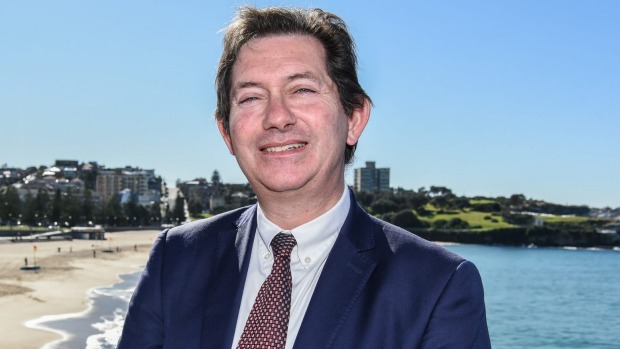UNSW aims to be a top 50 university within 10 years
The University of NSW will position itself as Australia's global university and one of the best 50 institutions in the world as new analysis shows its research activity contributed $15 billion to the Australian economy last year.
Vice-Chancellor Ian Jacobs on Tuesday released the UNSW 2025 Strategy, which sets out the priorities and themes that will guide UNSW over the next decade.

The priorities include "a drive for excellence in research and education; a passion for social justice and engagement to improve lives; and a commitment to achieving global impact through powerful partnerships and by working with disadvantaged and marginalized communities".
"We aspire to be in the world's top 50 in the belief that a great university, which is a global leader in discovery, innovation, impact, education and thought leadership, can make an enormous difference," Professor Jacobs said.
"UNSW's ambition for the next decade is to be a global leader of change and innovation with an altruistic wish to improve people's lives through academic excellence, social engagement and global impact."
Professor Jacobs also released university-commissioned research from Deloitte Access Economics.
"The findings of this study emphasize the important role that Australian universities can and will play in supporting economic growth and wellbeing in Australia over the coming decades," the report says.
The report found that UNSW's day-to-day operations and capital expenditure generated $1.76 billion in economic activity in 2014, creating 11,700 full-time jobs.
"This study estimated that UNSW's 4900 bachelor degree graduates from 2013 may contribute as much as $204 million to Australia's GDP each year over their lifetimes, equivalent to around $41,500 per graduate per year," the report says.
"As this study has found, UNSW's ongoing operations and student expenditure in 2014 contributed 11,700 jobs to the Australian economy.
"Almost 5900 staff (FTE) were employed directly by UNSW. As UNSW's teaching and research activity expands, so too will the jobs it contributes to the economy."
The study estimates a return on investment in university research between $5 and $10 for each dollar invested, equating to an annualized return rate of 60-100 per cent.
"By way of comparison, the current annualized real return to paying down government debt is around 1.5 per cent in real terms and the historical real before-tax rate of return on private investment is around 7 per cent," the report says.
As part of the study, case studies in solar cells, membrane filtration and image compression software from UNSW's faculty of engineering were used to illustrate the impact of research.
"In pure economic terms, universities are a smart investment. They are essential for driving innovation, productivity and jobs for the future. Rather than being a funding challenge, universities are a key economic and social solution," Professor Jacobs said.
Professor Jacobs said the Deloitte Access Economics report was a "timely contribution" to the national debate.
"I welcome the Turnbull government's focus on re-energising the science, research and innovation agenda," Professor Jacobs said.
Professor Jacobs said the dividends paid by smart investments in universities went far beyond dollar measures.
"As our 10-year plan highlights, what universities and graduates contribute to society is far more than our economic impact. It is about the benefits of our engagement, encouraging inquiry, improving social cohesion and adding to civic society," he said.
Source: smh.com.au


